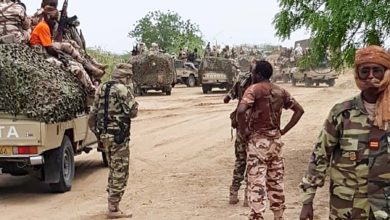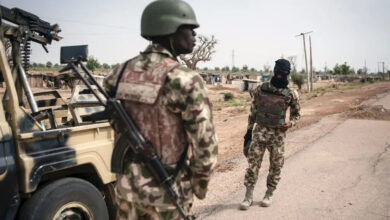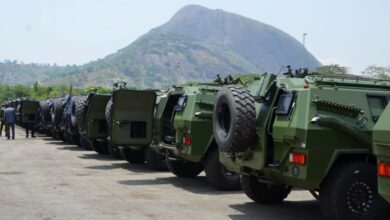Nigerian police claimed on Friday, November 30 that more than 100 “bandits” had been killed in a crackdown targeting crime in the northwest state of Zamfara, following a surge in kidnappings for ransom and cattle rustling.
Zamfara has been plagued by violent crime over the past year, with Amnesty International warning in July that people living in the impoverished state were “at the mercy” of armed bandits who take hostages and raid villages.
A joint operation team on Thursday “repelled ambush attacks from armed bandits” at Mahanga Forest in Zamfara State and “in the process killed one hundred and four bandits,” national police spokesperson Jimoh Moshood said in a statement.
Confirming the death toll Moshood told AFP: “Yes, 104 bandits [were killed]. Not people, armed bandits that had been terrorising and killing innocent people.”
More than 1,000 police officers had been deployed to Zamfara at the beginning of the month, the statement said, adding that since then 85 people have been arrested in connection with kidnappings and cattle rustling.
Amnesty International Nigeria spokesman Isa Sanusi said it was difficult to assess the success of security operations in the remote region.
“In many cases, the pronouncements of security agencies are quite contrary to the situation on ground in Zamfara state,” Sanusi said.
“Bringing the killers to justice is more important in taming the tide of impunity that allowed the security situation in Zamfara state to continue deteriorating.”
In the last two years, kidnapping for ransom has reached unprecedented levels in the region, where entire villages have been deserted for fear of raids and kidnapping by criminal gangs.
Those abducted are often released within days if the ransom is paid but residents say they can be killed if no money is forthcoming, and their bodies dumped in the bush.
In April, the Nigerian government deployed troops to Zamfara to fight criminal gangs while the police outlawed vigilantes to end the tit-for-tat killings.
In June, at least 10 people were killed by suspected cattle thieves in raids on remote villages in Zamfara.
In July, Nigerian police said they found the bodies of 41 men with their throats cut in Zamfara state. Police believed the victims were gang members who had been involved in cattle rustling and kidnapping in area notorious as a hideout for criminal gangs, and that they were killed by members of a widely-feared local vigilante group “who decided to carry out the extra-judicial killings.”
The problem has sparked the concern of neighboring Niger.
In August, Niger’s government announced it was sending security reinforcements to the Maradi area on the southern-central part of the border, which abuts Zamfara.
Niger’s interior minister Bazoum Mohamed said in October that at least 30 ‘bandits’ were killed on the troubled frontier between Niger and Nigeria after a three-week a joint military crackdown between the two countries.
He said that a dozen more were detained, 12 bases in Nigeria were dismantled and the authorities were “fully in control” of the region.
Kidnappings are just one security concern putting pressure on Nigerian President Muhammadu Buhari who is seeking a second, four-year term in closely contested February polls.
Facing criticism for an increase in Boko Haram jihadist attacks, among other security threats, Buhari is working to show that his government is able to tackle rising violence in Nigeria, Africa’s largest oil producer.
Conflict between famers and herders is also a significant threat.
In late June, more than 200 people were killed in a weekend of violence against farming communities in Nigeria’s central Plateau state.
The conflict between central Nigeria’s herders and farmers is stoked by ethnic rivalries and access to land. Within Nigeria some commentators have sought to blame language or religious differences for the violence, as most of the Fulani herders involved in the attacks are Muslim, and most farmers are Christians from the Berom and other ethnic groups.
Could mining offer a ‘third way’ for Nigeria to cool a simmering conflict?
With reporting from AFP












